If you’ve been reading and appreciating Titan’s run of Doctor Who comics the last few years, you’ve run into Rob Williams. Known more recently for his work on DC’s Martian Manhunter and Suicide Squad, the British comic author has penned Titan’s run on the Eleventh Doctor since the very beginning.
Currently, Williams’ run on the Second Season of Doctor Who is only two issues from it’s end. These final installments will close out a story arc that spanned all fifteen issues and saw the Doctor reunite with old friends like River Song and old frenemies like Abslom Daak and The Master. It’s taken readers back to the Time War, trapped them inside the TARDIS, and has left River Song dying in stasis, awaiting a cure to a malignancy inflicted by The Malignant: a horror potentially linked to the aforementioned Time War.
Somehow Williams balances writing duties on multiple titles and timelines, but in his work this year on Doctor Who, he–along with co-writer Si Spurrier–has delivered a season of comics to rival even the rather excellent last season of the long-running BBC tv series. He managed to grab a few minutes to talk to the Beat about his collaborators, favorite characters, writing approach, and what kind of story readers can expect from the next season of the Eleventh Doctor comic.
Edie Nugent: You worked with Al Ewing on Season One of the 11th Doctor, and now you’ve written Season Two with Si Spurrier. Any chance of getting Ewing back with Spurrier on the forthcoming season three and reuniting the entire Judge Dredd: Trifecta team?
Rob Williams: Sadly not. We’re all so busy. But that moment in time, with Trifecta, did feel a bit like a band album. Al & I co-wrote Who season 1, Si came on for season 2. The reason we can do this is we’re all friends and came through 2000AD at roughly the same time, but we’ve all got our various timetables to deal with.
Nugent: With Ewing on Season One you co-wrote a few issues together and alternated full issue writing duties. Season Two seems to find you and Spurrier alternating full issues. Why the difference in approach? Did the story demand it?
Williams: Actually the approach isn’t dissimilar in one sense. We co-plotted the A plot series arc in season one, and then left space for Al & I to pitch individual episodes. With Si and I we’ve done the same, but the difference is that all of season two is A plot. It’s a novelistic structure. Each issue is a chapter in one long story. That’s been very challenging, and plays more to Si’s strengths of complex plotting than mine, but I think we’ve delivered something unique for Who. It’s far more The Wire in TV terms than it is monster-of-the-week.
Nugent: You had three major Whoniverse guest stars this season: The Master, River Song, and Abslom Daak. Were those characters you and Spurrier personally requested to appear?
Williams: Yes, and everything has to be run past the BBC. Abslom Daak, I read when I was a boy and loved, and I know Simon Fraser‘s [11th Doctor artist] a huge fan too. I asked if we could use him, as I thought that’d be a great, fun addition. The Master is interesting inasmuch as we’ve shown a never-before-seen incarnation of The Master. How he teamed with the War Doctor in the Time War. It’s nice to feel you’re adding to the Who canon somehow.
Nugent: Both of the teams aboard the TARDIS in Season One and Season Two have been excellent, so diverse in terms of both age and origin. Is that something you actively pursue when planning the season?
Williams: I think that’s inherent in new Who, and rightly so. A healthy diversity in cast. Our editor, Andrew James, is very good about upholding the spirit of the show.
Nugent: What are your dream characters that you’d like to include in the future season? Companions, villains, settings in space and time? Any others from the Who-comic-verse? (*cough* Frobisher *cough*)
Williams: Oh, I rather think we’ve ticked a lot of fan boxes with this season. Especially the inclusion of Douglas Adams‘ Shada. The War Doctor. Daak. Especially Daak. You don’t want it to feel like fan-fiction. I think in the next season it’d be fun to take The Doctor back to exploring the past somewhat.
Nugent: Any hope of obtaining the rights to reproduce Terry Nation’s Daleks in the new season? Though I must say the Volatix Cabal were immensely entertaining!
Williams: Thanks. The Volatix Cabal are very much Si Spurrier’s babies, and Si immediately gave them this creepy speech pattern. But the idea of a group of extreme scientist insane non-Dalek mutants – brrrrr. Ian Culbard did a lovely design job on them too. They can come back.
Nugent: On Season One you had more self-contained adventures, spanning an issue or two. Season Two sees you follow a large story arc–putting the pieces together of a greater mystery set up in issue 2.01. What can we expect from Season Three in that respect?
Williams: The novelistic approach was a fun way to go, and it was important to us to do something distinct from season one. I think season 3 may be more back-to-basics. And we may include one or two new voices too.
Nugent: The Doctor’s relationship with Alice was really tested this season, but rang emotionally true. How do you approach writing emotional conflict so it comes across authentically?
Williams: Well any decent story has to have conflict of some kind, preferably emotional. The Doctor has been accused of being a master manipulator in this season, and to prove that’s not the case he’s… rather manipulated poor Alice. It’s sort of what he does. He cares for Alice deeply, but he’s convinced her she was unworthy to be his companion in order to force her hand into certain actions. The Doctor lies… we know that. He does it for good intentions, but it’s still sometimes painful. For Alice, she believes in him and risks everything to prove his innocence while still being very angry with him. And The Doctor is willing to send Alice back to the Time War – the most traumatic period of his history, but he’s got a plan to keep her safe. There’s certainly layers of nuance to their relationship this season.
Nugent: We’ve still got two issues left to go in Season Two, will there be any hints to what Season Three has in store in those final installments?
Williams: No, our final two issues are jam packed, tying up the loose ends and mysteries we’ve set up in season 2. There’s no room for future hints!
Nugent: Any hints YOU can give our readers to what Season three has in store?
Williams: We’re working on it now. Bear with us. I think you can expect more of a classic Who ‘episode of the week’ approach this season, and some exciting new voices too.
Doctor Who: The Eleventh Doctor Season Two issue 13 hits stores on September 28, the final two issues of the arc will drop in October and November. Season Three will feature Rob Williams returning on writing duties, as well as Simon Fraser and his long-time colorist Gary Caldwell, who will split art duties with Leandro Casco.
For a little taste of what’s to come in Doctor Who: The Eleventh Doctor Season Three, check out the covers to the forthcoming issue 3.1 below. Issue 3.1 is due out on December 14.
COVER A – Josh Burns
COVER B – Photo
COVER C – Question No. 6
COVER D – Simon Fraser
COVER E – Simone Di Leo


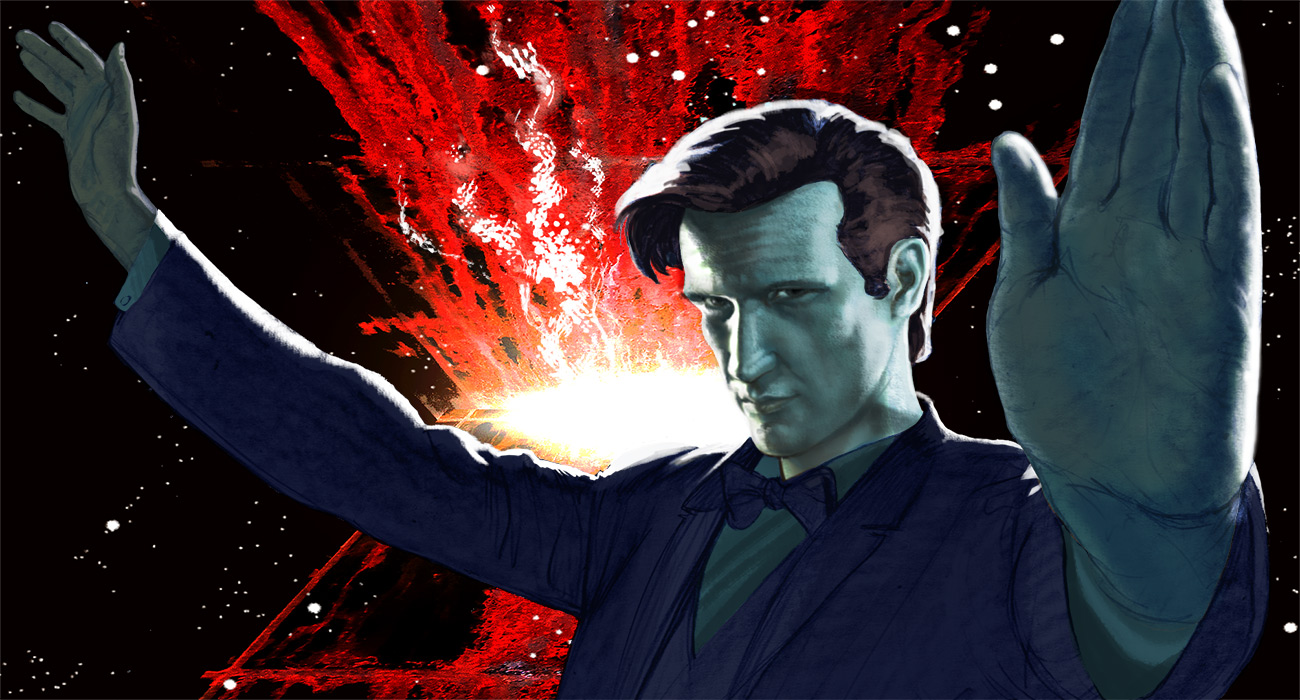
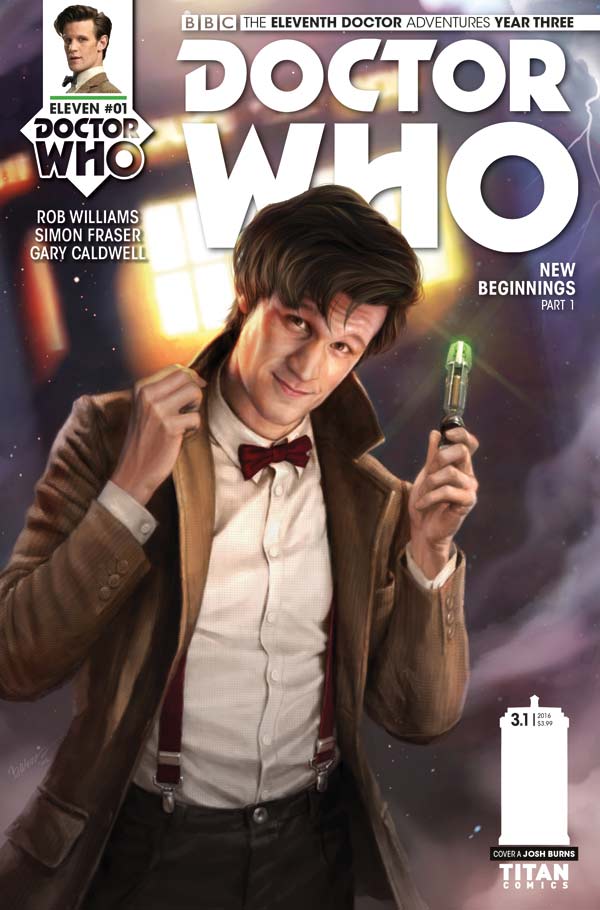
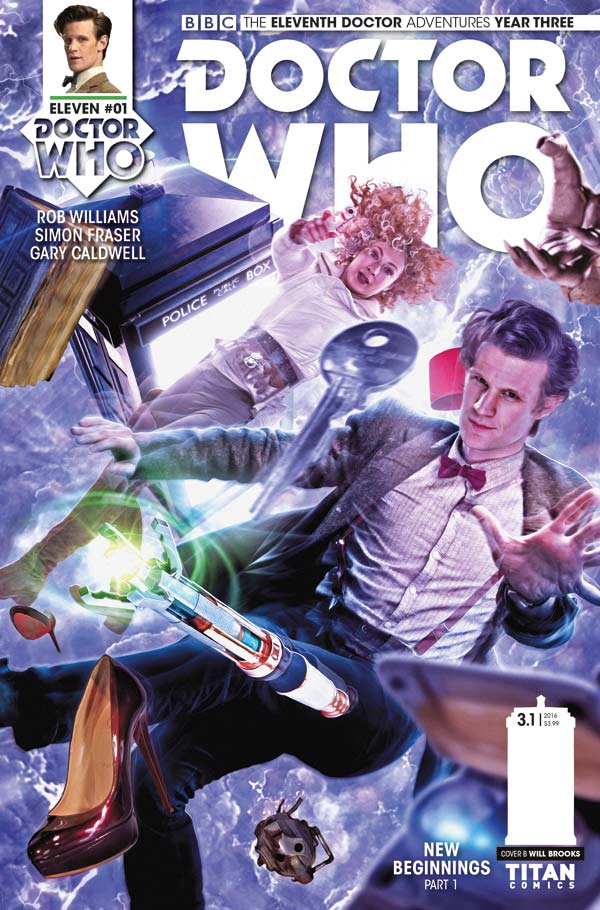
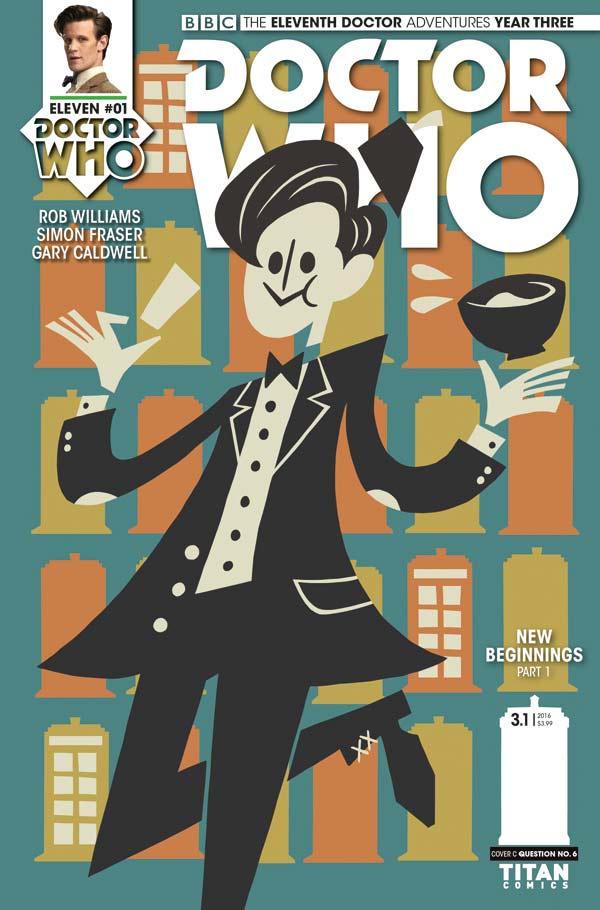
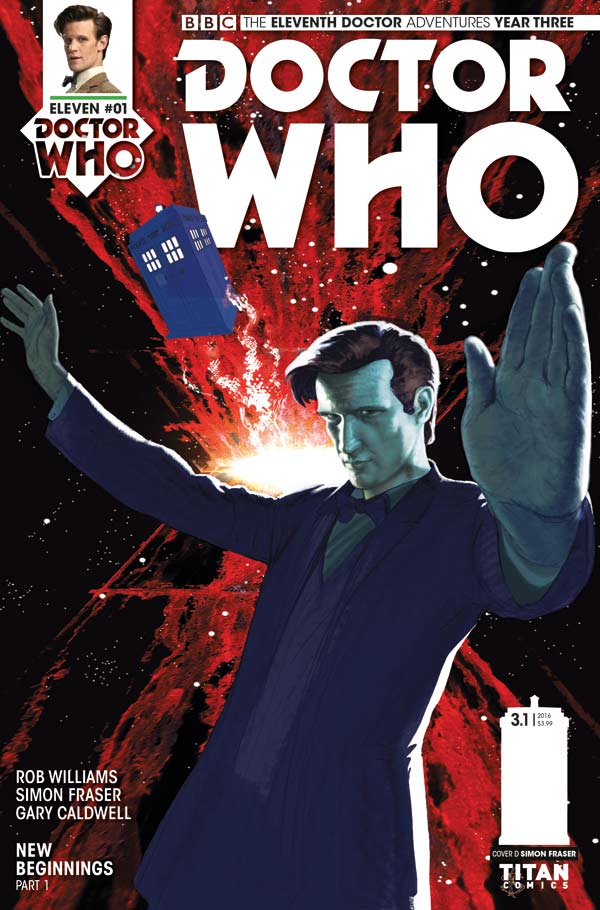
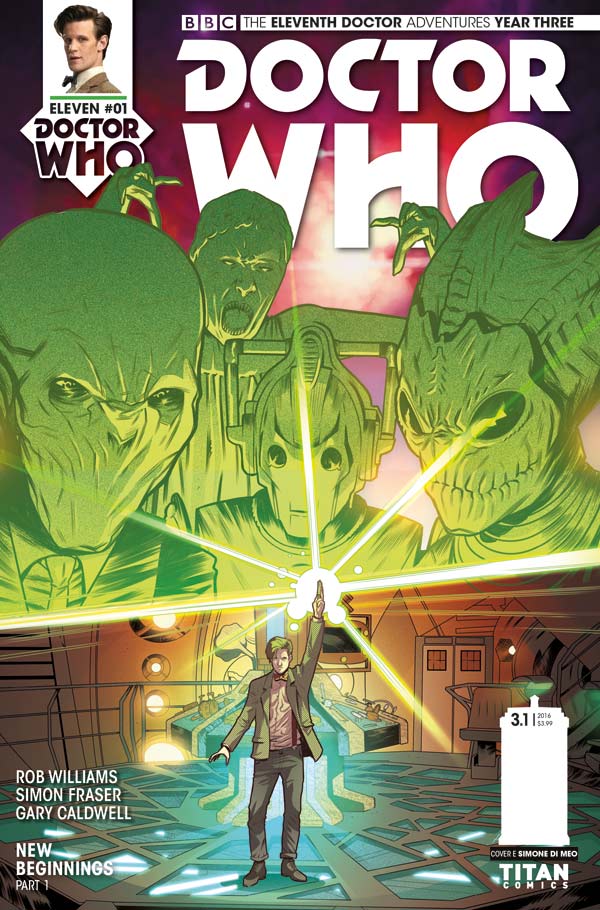


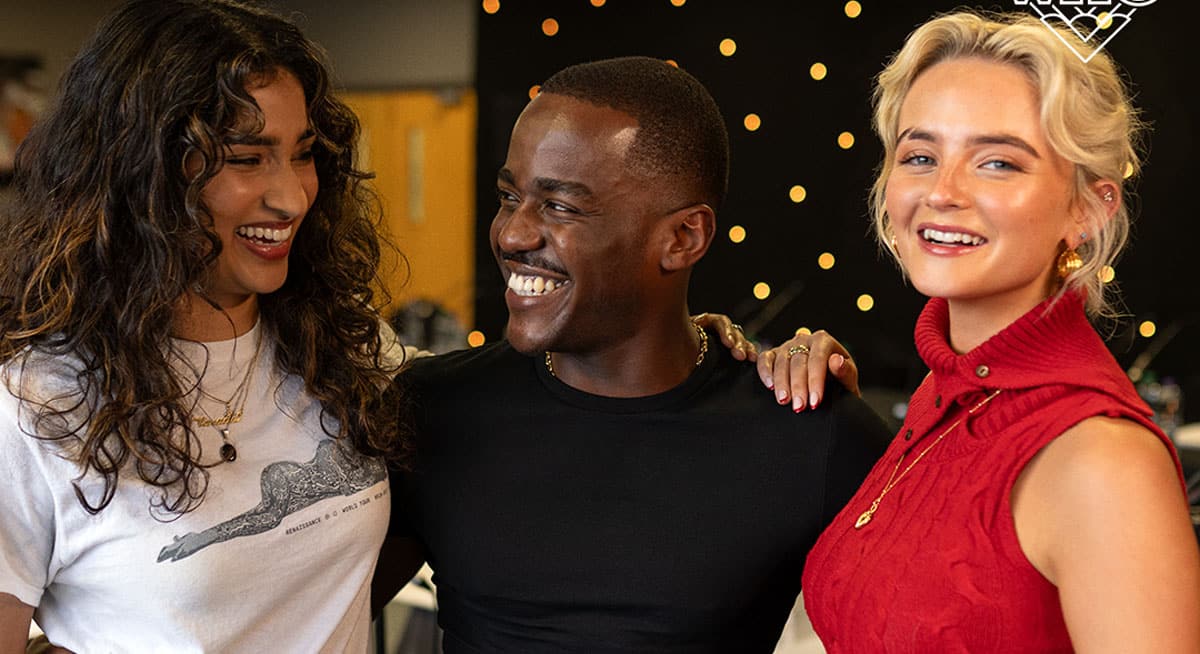


I love the Eleventh Doctor Titan comics – they’re some of the best non-TV Doctor Who of all time. But they really aren’t the first long-term arc in Doctor Who spin-offs. They aren’t even the first in comics!
Okay, this is the problem with have too many blessed comics. If I had known that Abslom Daak, the Dalek Killer, was going to be in a Doctor Who book, I would absolutely have been all over it.
Mike
Comments are closed.